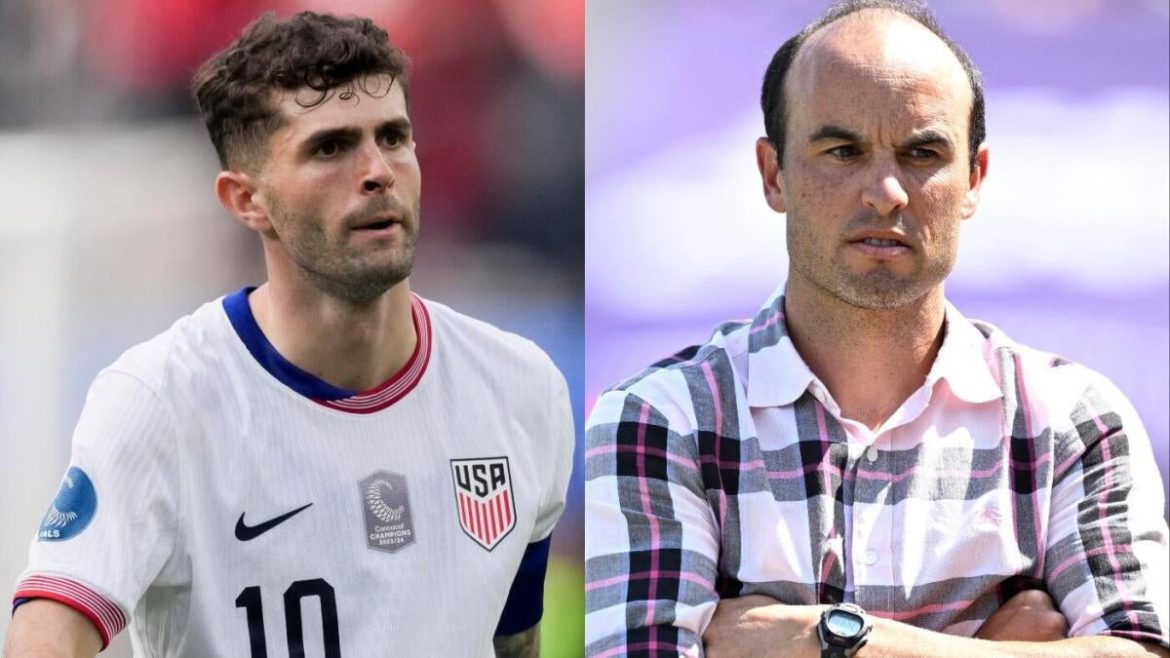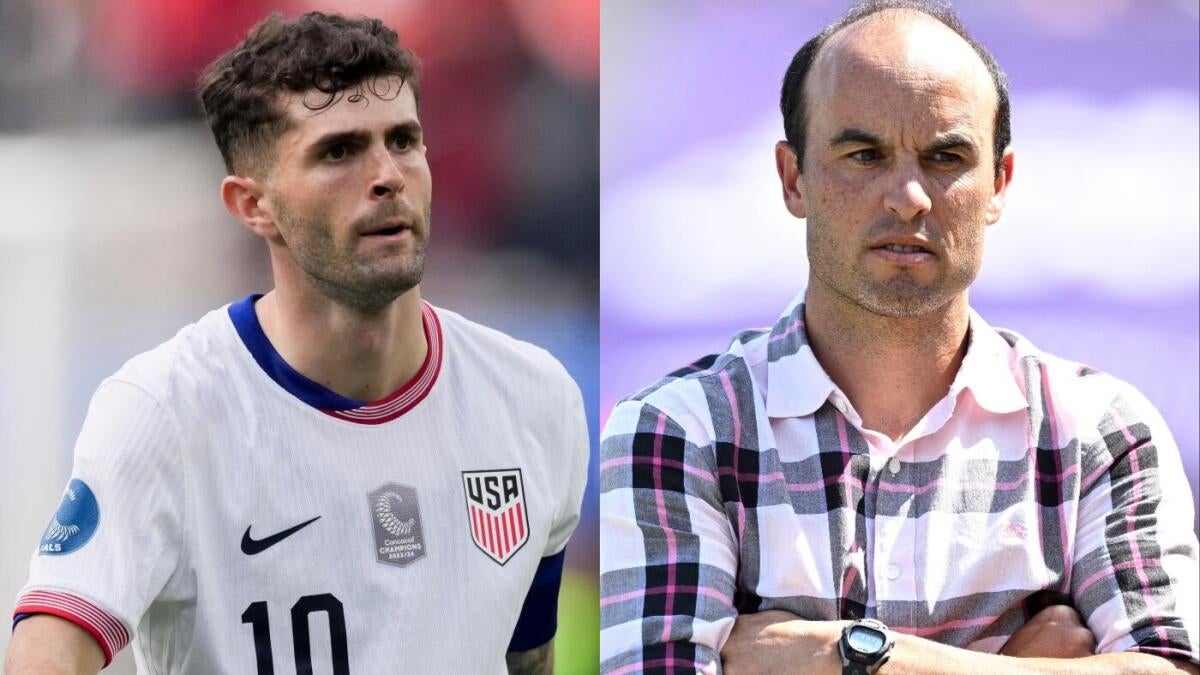Christian Pulisic and Landon Donovan: Unpacking the USMNT Stars’ Recent Feud
The ongoing discord between Christian Pulisic, the current star and captain of the U.S. Men’s National Team (USMNT), and Landon Donovan, arguably the most influential figure in U.S. soccer history, has drawn considerable attention and controversy. This dispute centers largely on Pulisic’s decision to skip the 2025 CONCACAF Gold Cup to rest after a demanding season with AC Milan, a choice Donovan and other former USMNT legends have openly criticized. The involvement of Pulisic’s father, Mark Pulisic, who has fired back at Donovan’s judgments, further intensifies this high-profile exchange. To understand the complexities here, it is vital to examine the motivations, historical context, and implications for U.S. soccer featured in this saga.
The Core Conflict: Pulisic’s Rest vs. Donovan’s Criticism
At the heart of the dispute is Christian Pulisic’s choice to take a sabbatical from competing in the Gold Cup, citing the need for physical and mental recovery following approximately 120 matches played for club and country over two seasons. This decision comes ahead of crucial fixtures including the 2026 World Cup cycle, positioning rest as a strategic move for longevity and peak future performance.
However, Landon Donovan vehemently disapproved of Pulisic’s absence, suggesting on Fox Sports and other platforms that USMNT players who refuse to participate in the Gold Cup lack commitment and fail to embody national pride. Donovan has framed the tournament as a critical opportunity for USMNT representation and development, which players should prioritize regardless of their personal demands or club-level fatigue.
Historical Context: Loyalty, Priorities, and Donovan’s Own Sabbatical
The controversy snowballed as Mark Pulisic, Christian’s father, responded publicly to Donovan’s critique by drawing parallels to Donovan’s own career. He highlighted that in 2012-2013, Donovan himself took a sabbatical from the national team citing exhaustion and mental fatigue, much like his son’s current situation. This revelation prompted accusations of hypocrisy aimed at Donovan, challenging his moral high ground in criticizing Pulisic.
Mark Pulisic’s pointed use of AI tools such as ChatGPT to underscore Donovan’s past decisions intensified the narrative of double standards. This not only exposed nuances in player welfare that may have been overlooked previously but also questioned the consistency of expectations placed on modern athletes.
Voices Within the USMNT and Broader Soccer Community
The rift has extended beyond Donovan and the Pulisics, sparking division among current USMNT members, former players, and analysts. Weston McKennie, a teammate and peer of Pulisic, defended him publicly, noting the grueling demands on players and validating Pulisic’s need for rest. Tyler Adams echoed similar sentiment, pointing to the immense workload top-level players endure and stating the team attempts to tune out external criticisms.
Conversely, some experts and commentators have lamented the perceived reduced aggression and national team commitment symbolized by these absences. ESPN FC analyst Alejandro Moreno, for example, critiqued both Pulisic and the USMNT for lackluster performances at the Nations League Finals, indirectly tying such outcomes to leadership and player availability issues.
Impact on the USMNT’s Dynamics and Public Perception
This public spat exposes deeper tensions about how U.S. soccer balances star player welfare, national duty, and competitive ambition. Pulisic’s absence, alongside other key players opting out or being unavailable for the Gold Cup due to personal or injury reasons, has fueled debates over team cohesion and depth. The feud also highlights generational differences in athlete management philosophies.
Donovan represents an earlier era in U.S. soccer where players faced arguably more limited support structures and were often expected to prioritise national team appearances above all else. Conversely, Pulisic’s approach reflects modern athlete management norms emphasizing sustainable physical health, mental well-being, and career longevity.
Additionally, the ongoing “soccer dad” culture—embodied by Mark Pulisic’s vocal defense of his son—adds another layer illustrating how familial involvement influences current sports discourse. Media coverage capturing this multidimensional drama reveals how public and private components of athlete careers increasingly intertwine.
Conclusion: Navigating Legacy, Loyalty, and Athlete Welfare in U.S. Soccer
The Christian Pulisic–Landon Donovan controversy transcends a mere personal dispute; it symbolizes the evolving landscape of American soccer. At its core lies a fundamental question: how should the sport reconcile historic expectations of nationalism and player sacrifice with contemporary understandings of physical and mental health management?
Donovan’s insistence on unwavering national team commitment clashes with the pragmatic choices athletes like Pulisic make in prioritizing career sustainability. The intervention of Mark Pulisic underscores the complexity surrounding these decisions and challenges simplistic judgments. For the USMNT, this episode is a catalyst for broader reflection—not only about team performance and prestige but about nurturing a soccer culture that respects players’ holistic needs.
Ultimately, this high-profile feud defines a turning point for U.S. soccer, emphasizing the importance of dialogue and mutual understanding among past heroes, current stars, and emerging talent. How this narrative is navigated will shape the legacy of the USMNT in an era marked as much by athletic excellence as by thoughtful leadership and empathy.





